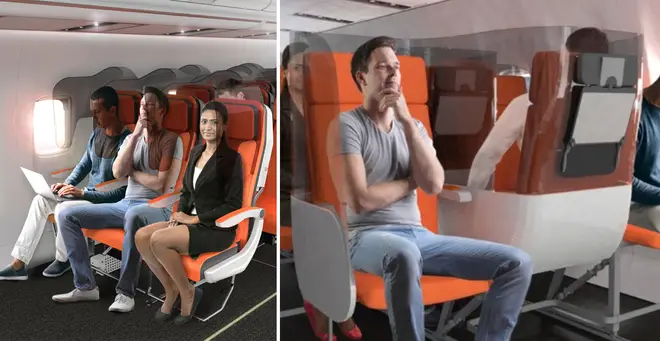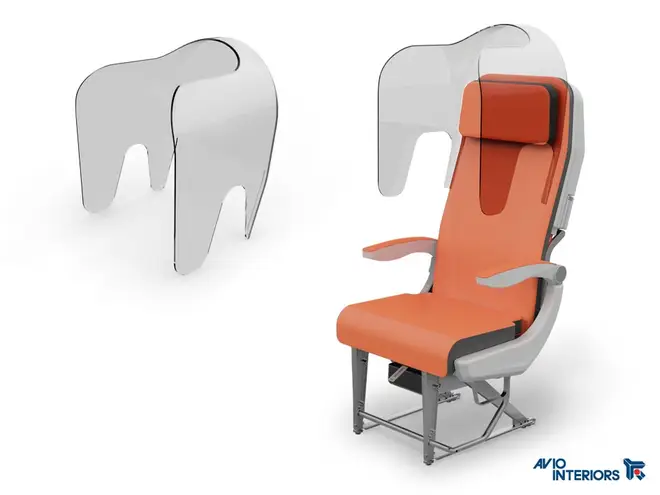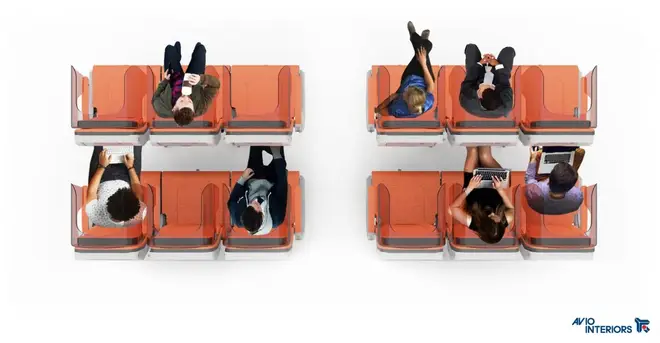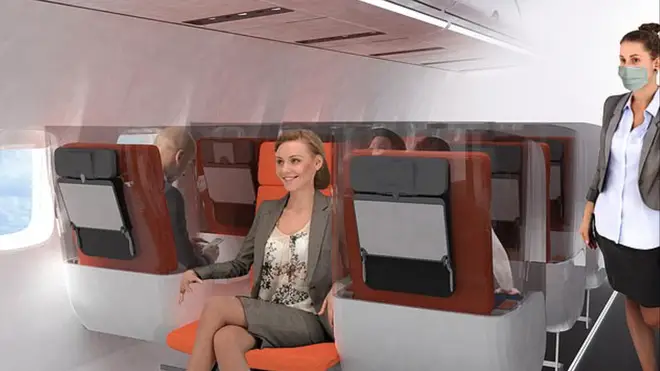How flying economy could change after coronavirus - including hygiene screens and backward seats
22 April 2020, 10:44

The futures of flying could look very different after the coronavirus pandemic.
While most international travel is currently on pause due to the coronavirus outbreak, flying could look very different in the future.
New airplane designs show ways in which passengers could help limit the spread of illnesses using hygiene screens and backwards facing seats.
The ideas were revealed by aircraft cabin designers Aviointeriors, the company which previously created stand-up seats.
If the plans were implemented, in economy class each seat would have a screen around the head and side which would stop unnecessary contact with the passengers sitting beside them.


The design firm explained: "Glassafe [creates] an isolated volume around the passenger in order to avoid or minimise contacts and interactions via air between passenger and passenger, so as to reduce the probability of contamination by viruses or other."
While the Glassafe screens could be installed on existing aircraft seats, some planes would have to be redesigned to include their second idea - backwards facing seats.

Called the 'Janus', which takes its inspiration from the ancient two-faced Roman god, with Aviointeriors claiming this will ensure maximum isolation between those next to each other.
They explained: “Each passenger has their own space isolated from others, even from people who walk through the aisle.
“Each Janus seat is surrounded on three sides by a high shield that prevents the breath propagation to occupants of adjacent seats.
Read More: When will the hairdressers and salons re-open in the UK after lockdown?

Holly Willoughby admits to lying to her children about Easter holidays
“It is made of easy cleaning and safe hygienic materials. The option is available with the shield in opaque material or with different degrees of transparency.”
While Aviointeriors claim the new designs are ready for production, it is unlikely to come into practice anytime soon as they would have to pass stringent safety regulations first.
There is also no scientific evidence that the screens would work as some studies suggest COVID-19 can live on surfaces for up to 72hours.
This comes after it was suggested some airlines could start blocking middle seats in a bid to distance passengers in the future.
Others are testing every passenger for COVID-19 before allowing them to board.






























